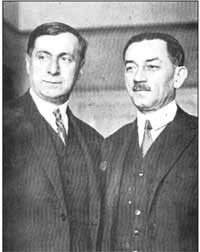Milan Rakić

Milan Rakić (18 September 1876 – 30 June 1938)[1] (Милан Ракић) was a Serbian poet. He focused on dodecasyllable and hendecasyllable verse, which allowed him to achieve beautiful rhythm and rhyme in his poems. He was quite a perfectionist and therefore only published two collections of poems (1903, 1912). He wrote largely about death and non-existence, keeping the tone sceptical and ironic. Two of his most well-known poems are An Honest Song (Iskrena pesma), A Desperate Song (Očajna pesma), Jefimija, Simonida and At Gazi-Mestan (Na Gazi-Mestanu). He was a member of the Serbian Royal Academy (1934).
Biography
The poet was born in 1876 in Belgrade. He finished elementary school (grade school) and high school (gymnasium) in Belgrade. In Paris, France he finished law school. It was in Paris that he, like Dučić, came under the influence of French Symbolist poets. They both had learned to admire French culture and had dreamed of a better world after the war. After returning to Belgrade from Paris he became a diplomat (like Jovan Dučić) for the Serbian (and later Yugoslav) government and remained in that job until nearly his death, representing the country abroad. He died prematurely in 1938 in Zagreb, Yugoslavia (now Croatia) right after surgery.
His father, Dimitrije Mita Rakić, educated abroad, was Serbia's Minister of Finance (1888); his mother Ana was the daughter of Serbian writer Milan Đ. Milićević; his sister Ljubica was married to Milan Grol; and his wife Milica was the daughter of Ljubomir Kovačević (1848–1918), a distinguished Serbian historian and politician.
Publications
- Collection of Poems, 1903
- Collection of Poems, 1912
Reception
His poetry is mainly centred on love and philosophical themes. Although he wrote very few poems (altogether 64), his poems are considered some of the highest-quality Serbian poetic works. His works follow the school founded by Vojislav Ilić. After Aleksa Šantić and Jovan Dučić, Milan Rakić is generally considered the third greatest Serbian poet of the twentieth century. He is well respected for writing thoughtful patriotic and religious poetry at a time during which romanticism was the style of lyric choice. He is particularly well known as the poet who perfected the hendecasyllable verse using rich vocabulary and calm imagery. The language of his poems is crystal clear, without obfuscation or unnecessary drama. With Aleksa Šantić, Rakić had brought life back to Serbian patriotic poetry.
References
- ↑ "Milan Rakić". JKP "Pogrebne usluge" - Belgrade. Retrieved 28 October 2012.
Sources
- Jovan Skerlić, Istorija Nove Srpske Književnosti (Belgrade, 1914 and 1921), pp. 458–60.